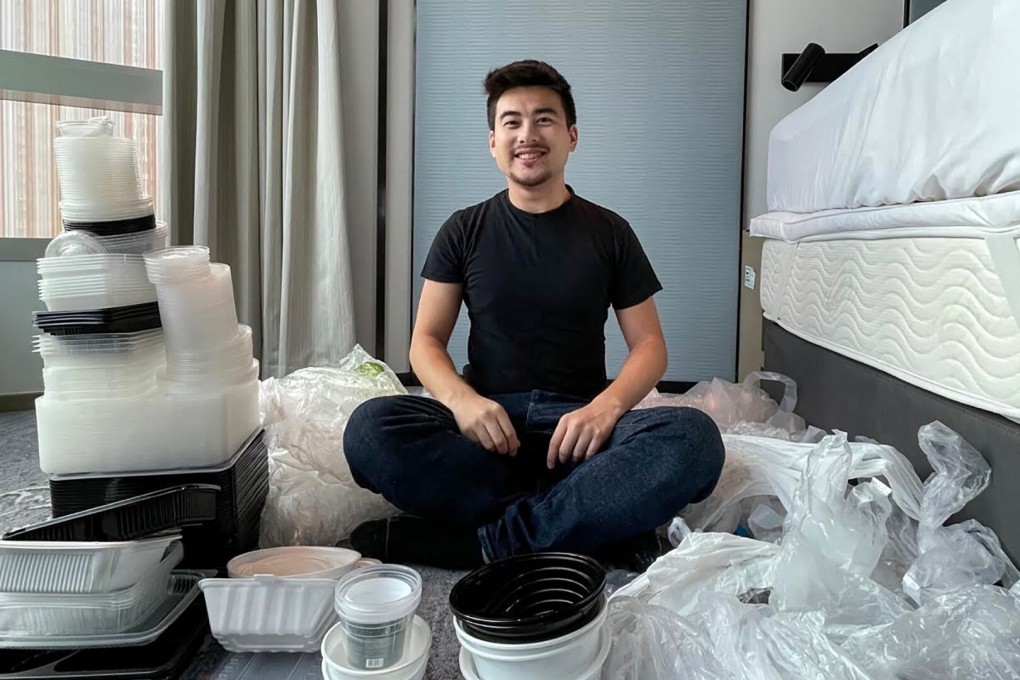Advertisement
Plastic trash piling up: Hong Kong green groups want quarantine hotels to stop using throwaway food containers, cutlery
- Hotels have safety guidelines, but are not compelled to collect disposable items for recycling
- Some quarantined guests amass hundreds of plastic boxes, cutlery to recycle after checking out
Reading Time:4 minutes
Why you can trust SCMP
12

When Hongkonger Sean Barry checked out of his quarantine hotel last month, he took with him nearly 300 pieces of plastic collected from his 21-day stay.
“I did get some weird looks as I was leaving, but I said it was for recycling,” he said, recalling the reaction of the hotel staff.
The 24-year-old brand researcher headed straight to a recycling centre to drop off his haul before returning home to Peng Chau, after coming back from Britain, which is considered high risk by the Hong Kong authorities.
Advertisement
Travellers who must stay at the city’s 36 designated quarantine hotels – almost always fully booked and part of Hong Kong’s strict coronavirus pandemic control measures – have almost all their meals served in disposable containers.
Some, like Barry, take the trouble of cleaning, collecting and bringing the containers to recycle after their quarantine ends.
Advertisement
But Hong Kong’s green groups have questioned whether the responsibility should fall on individuals, and urged the government to require hotels to provide reusable cutlery instead.
Advertisement
Select Voice
Select Speed
1.00x